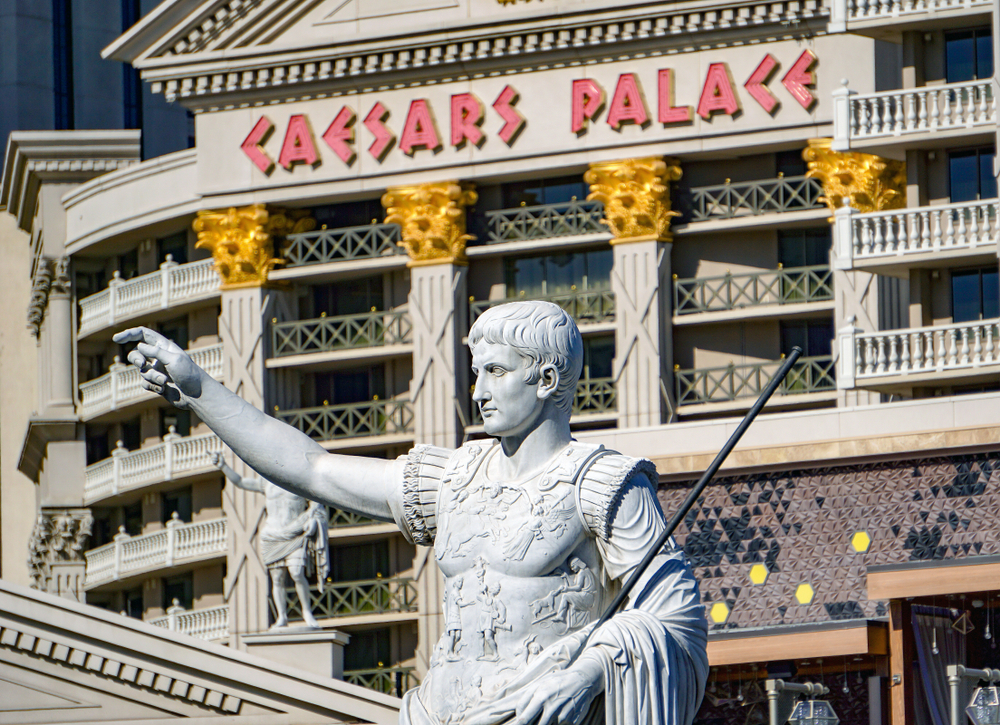Shares of US$6 billion behemoth Caesars Entertainment dropped a further 3.23 percent in after-hours trading on the Nasdaq Tuesday, bringing the year’s total slide to some 15 percent, following a lacklustre Q2 that was only rescued by digital gains.
Compared to the benchmark S&P 500’s average gain of 8.4 percent this year to date, the fiscals of Tom Reeg’s Vegas-heavy gambling leviathan are nothing to shout about.
And Caesars Entertainment, which owns or manages around 50 casinos and casino-resorts around the world–Vegas’s fabled Caesars Palace, among them–are now expecting Q3 to run the same flatline course.
Soft Summer
No doubt referencing the heavy-handed, be-masked, anti-migrant enforcing activities of the now-notorious federal ICE agency (Immigration and Customs Enforcement), which has blown a hole in Las Vegas visitor numbers, Caesars CEO Reeg is calling a “soft summer”.
Although Caesars posted revenue of US$2.91 billion (£2.17bn) in Q2, ending June 30, US$80 million (£59.86m) more than in the same quarter last year, the company, which traces its corporate roots to 1932 in Reno, Nevada, still reported a loss of US$82 million (£61.36m), against a loss of US$122 million (£91.29m) in Q2 2024.
Revenue in the core Las Vegas Division dropped 3.7 percent, to US$1.05 billion (£785.68m) from US$1.1 billion (£823m), year-over-year.
Digital Charge
Thankfully Caesars Entertainment’s Digital vertical came charging with respectability, increasing to US$343 million (£256.64m), from US$276 million (£206.52m) the previous year.
“Our Caesars Digital segment posted one of its strongest quarters ever, as momentum continues to build toward the financial goals that we originally laid out in 2021,” said Reeg in a statement.
“In Las Vegas, in the face of softer market demand in our hospitality verticals, we posted solid gaming results,” he added in an upbeat note.




